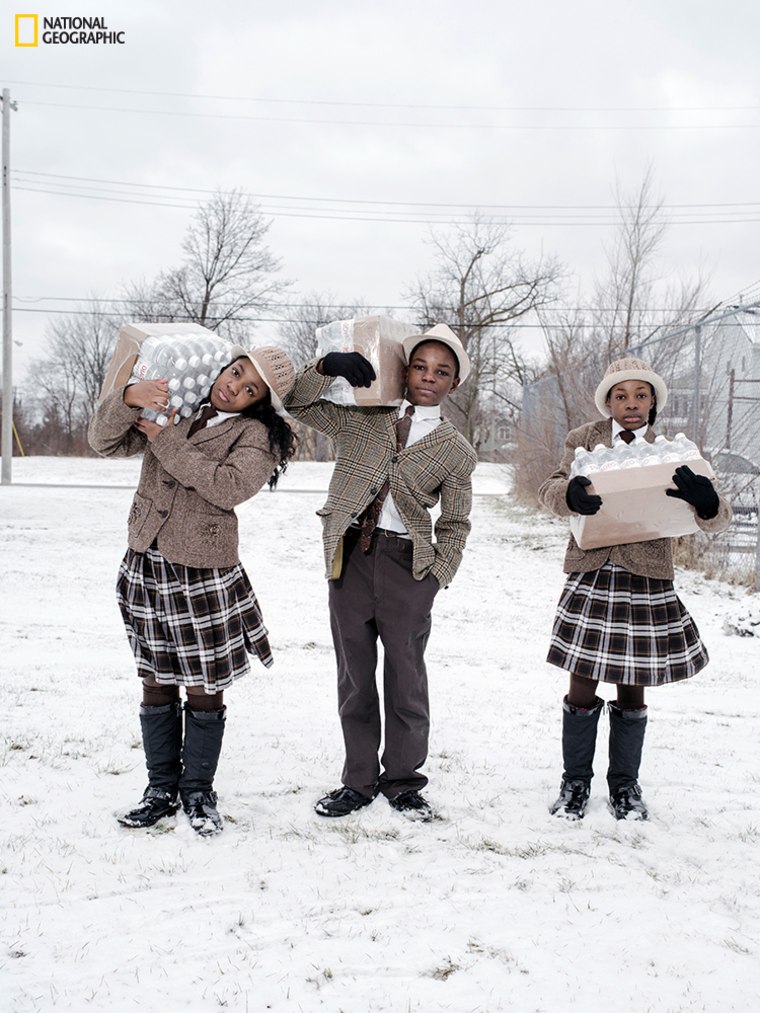It's easy for most people in the United States to take running water for granted. Not so in Flint, Michigan, where collecting bottled water has become part of the new routine. Photographer Wayne Lawrence captured portraits for National Geographic as residents performed this daily ritual. Five of Flint’s fire stations now serve as bottled water dispensaries.
For residents of Flint, the future is uncertain. The city's pipes continue to leach lead and no one can say with any authority when it will be safe to use the water again. And no one knows how much damage that lead has already done. "I’m worried about two, three years from now, what else is gonna come up," said Antionette Miles.
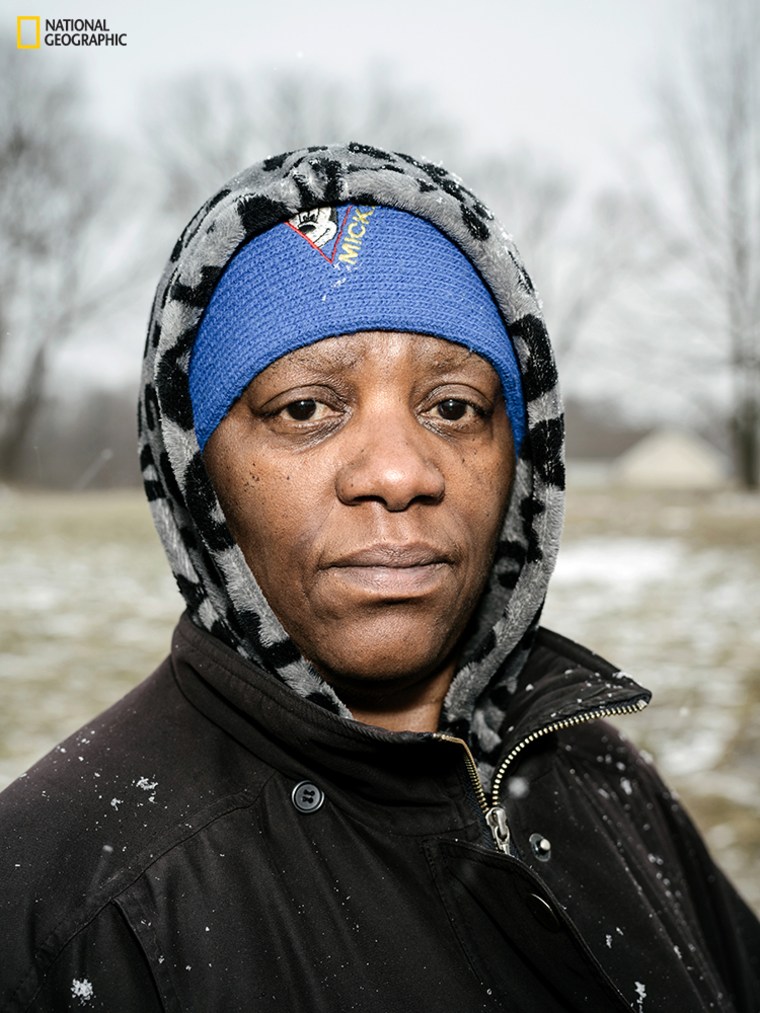
“Well, this water situation... I don’t know why this couldn’t be fixed in the first place,” Teresa Terrell says. “It’s a lot of people, a lot children, getting sick from this water. Even me and my children taking baths in it. We have little bumps, itchy bumps, on our arms. If they knew this all along, why they didn’t do anything or warn the public ahead of time?"
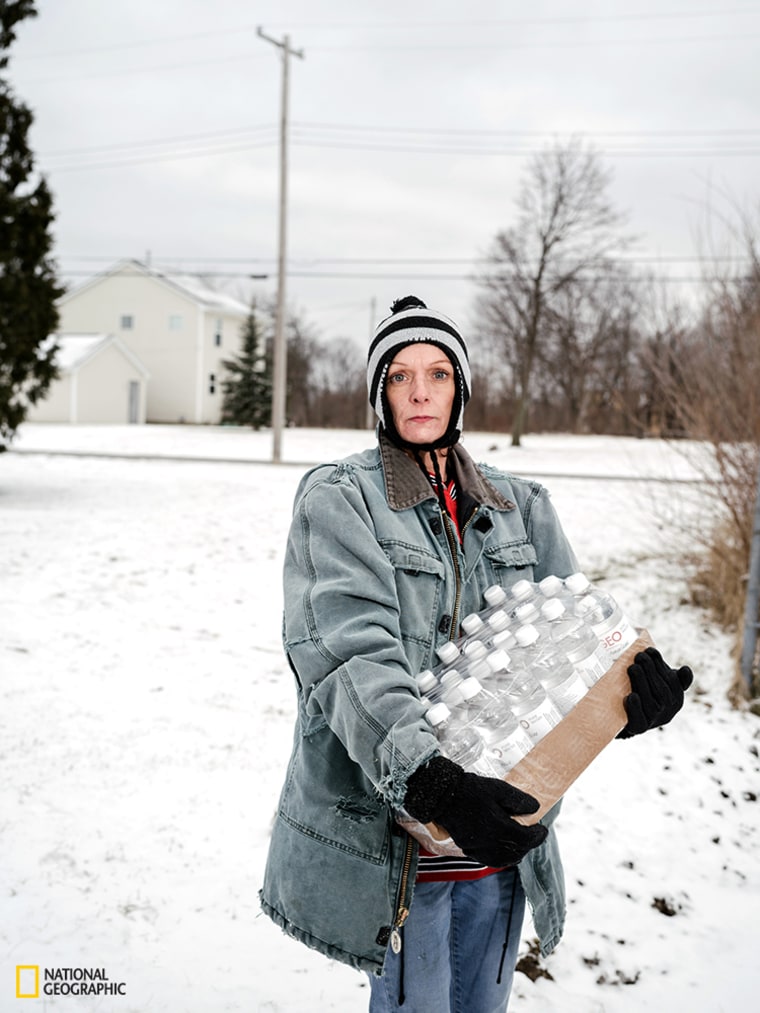
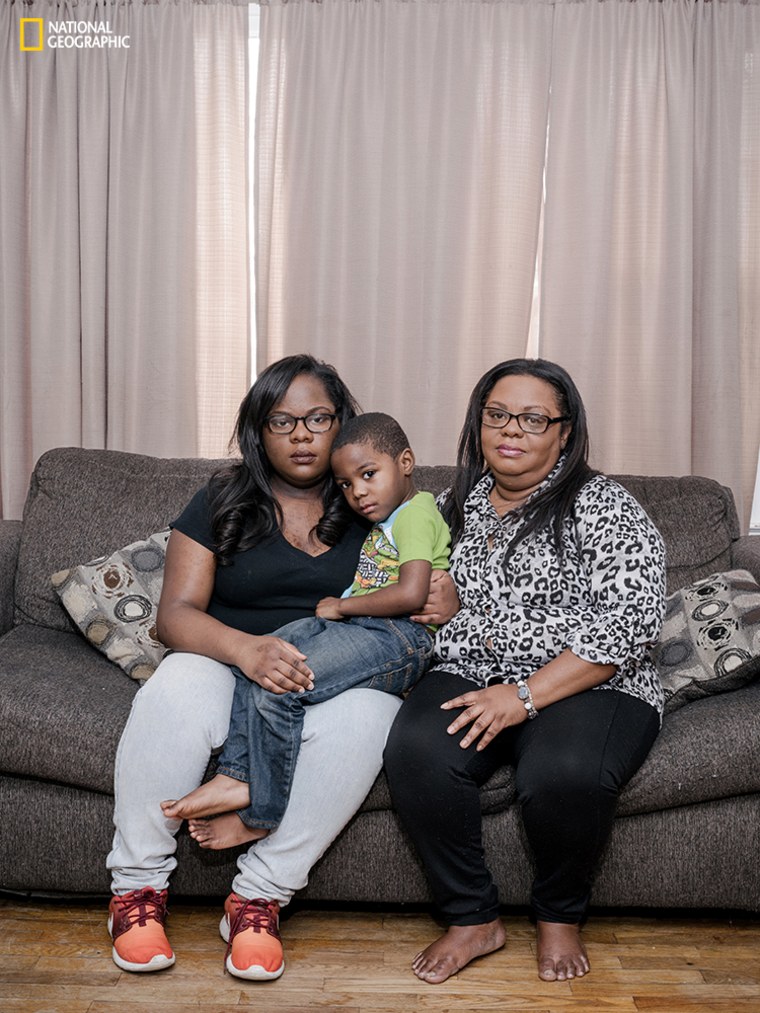
“When the water first switched over I remember taking a shower and I’m like, ‘It smells so funny in here,’” Keonna says. “And I remember probably a few months after that I started getting rashes, all around my neck, mainly. My neck would turn a bright red and it would just be stinging and burning and then it would dry up and start getting flakey and just still burning... Now I know not to stay in the shower more than five minutes. Probably two minutes, do what I gotta do, jump in and hop out.”
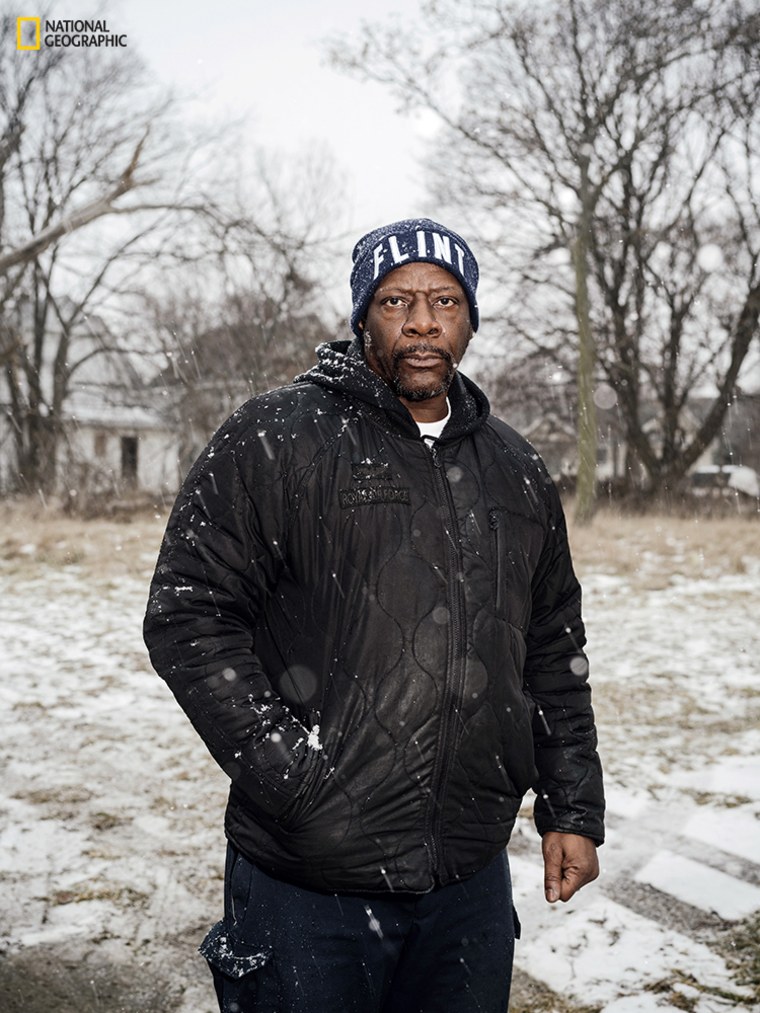
“You know how many babies here is affected now man, for the rest of their lives? And to my understanding and my little research it’s irreversible once you get lead poison in the brain. It’s nothing you can do about it," says Leighton. "And it’s like giving a whale a tic tac for bad breath, giving us a case a water a day. How we supposed to bathe, man? I got a wife, and I got a daughter here. I need way more than one case of water now. The people in charge need to take responsibility for what they’ve done to this city, man! People out here are mad as hell man, and I’m one of them."
